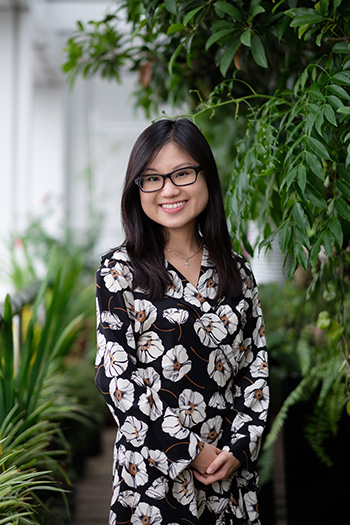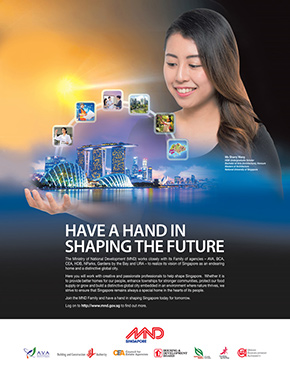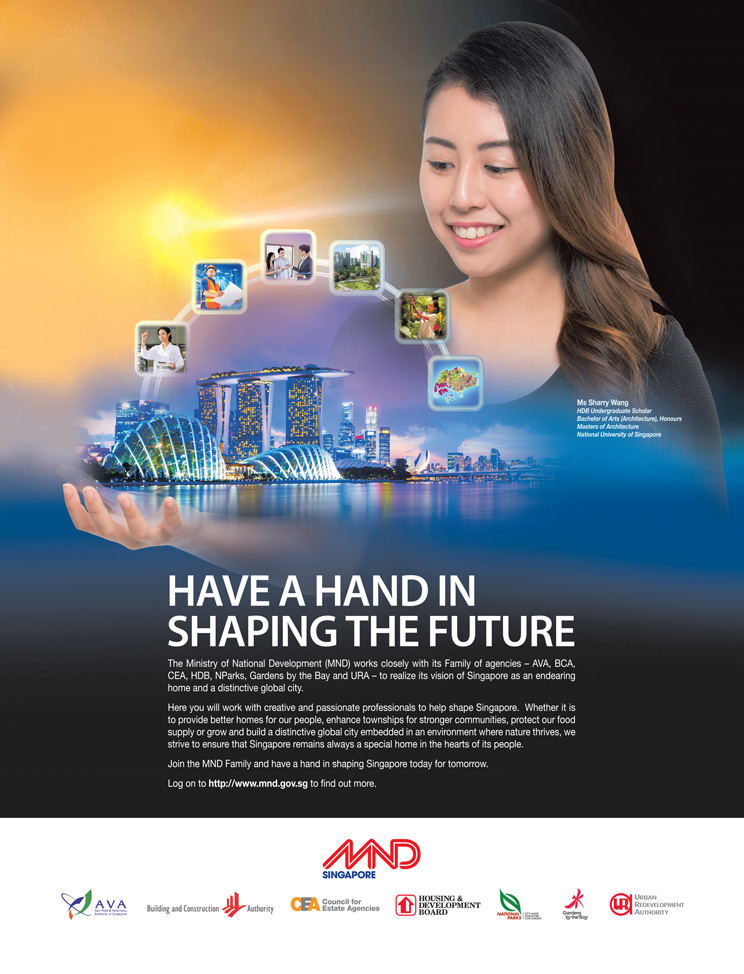Tying these projects together is the
prominent Sino-Singapore Tianjin Eco-city project
(SSTEC), which hits its 10th year milestone in
2018. The SSTEC is the second Government-to-
Government (G2G) project between Singapore and
China, which aims to jointly develop a socially
harmonious, environment-friendly, and resourceefficient
city in China. Amidst rapid urbanisation and
climate change, the SSTEC’s vision is to function as
a role model for sustainable development in other
cities in China and around the world.

Lee Xian Min
Assistant Director,
Eco-city Project Office
Bachelor of Social Sciences
National University of Singapore
Bridging Borders
Difference in language, culture, and expectations did not intimidate Xian Min when she began working on the SSTEC after graduating with a degree in political science from the National University of Singapore. Working across borders on an overseas project and facilitating partnerships between China and Singapore parties is not a conventional task. But Xian Min felt proud to be part of such an initiative and found the opportunity given by the Ministry of National Development (MND) extremely rewarding.
“My colleagues and I work closely with our Chinese counterparts to develop different areas of SSTEC, bringing together the good practices of Singapore and China and applying them to the local context. Playing the role of a coordinator, I try to understand and identify opportunities for an alignment of interests between stakeholders, so that collaboration can happen in a way that meets the objectives of the SSTEC. For example, Singapore and Chinese Institutes of Higher Learning and companies conduct joint R&D in areas of mutual interest, such as in the fields of green buildings and smart city solutions,” she elaborates.
10 years into the SSTEC’s conception, she is excited to be working on two milestone projects. “A book that captures the sustainable development experiences of the SSTEC to provide a reference for other cities, as well as a friendship gallery that presents the areas of collaboration between Singapore and China in building the city together. These projects embody the spirit of the SSTEC as a model of sustainable development and a joint undertaking by our countries,” she said.
International Exposure and Rewarding Work
The SSTEC has given Xian Min plenty of opportunities for professional and personal development as her job requires her to venture out of her comfort zone to embrace and learn about a different work culture.
“I communicate with our Chinese counterparts through WeChat everyday as that is their primary mode of communication rather than e-mail. I also visit China quite often, sometimes monthly or more, for official and staff meetings,” she adds. Making solo trips to facilitate meetings and visits required some courage and the ability to work independently, especially when Xian Min was a fresh graduate. She also had to be flexible in dealing with different stakeholders and became more confident in using Mandarin in work situations.
Apart from cultural differences, Xian Min has also faced challenges that arises from the management of a long distance cross-border project. For example, expectations of different teams may result in disagreements, which can only be solved through constant communication. This has motivated Xian Min to grow personally, be open-minded, and resilient in the face of any challenges that may present itself.
Contributing to the Future of Sustainable Development
Despite all the challenges, Xian Min gets a sense of accomplishment when mutual agreements can be reached on outstanding issues. For example, she recalls working with Singapore researchers and Chinese partners to overcome obstacles to test-bedding building integrated photovoltaics in the SSTEC. According to her, “The sense of camaraderie is rewarding. I have good superiors offering me guidance and mentorship, while at the same time allowing me to speak my mind and translate my thoughts into action.”
For students considering a career in MND, she stresses the importance of staying focused on the objectives of the work and on the larger picture. “There will be plenty of opportunities for growth and exposure for development on top of the meaningful and purposeful roles one will take on. I feel privileged and excited to be plugged into the fast-developing space of sustainable development and the operating environment of China,” she shares in closing.



